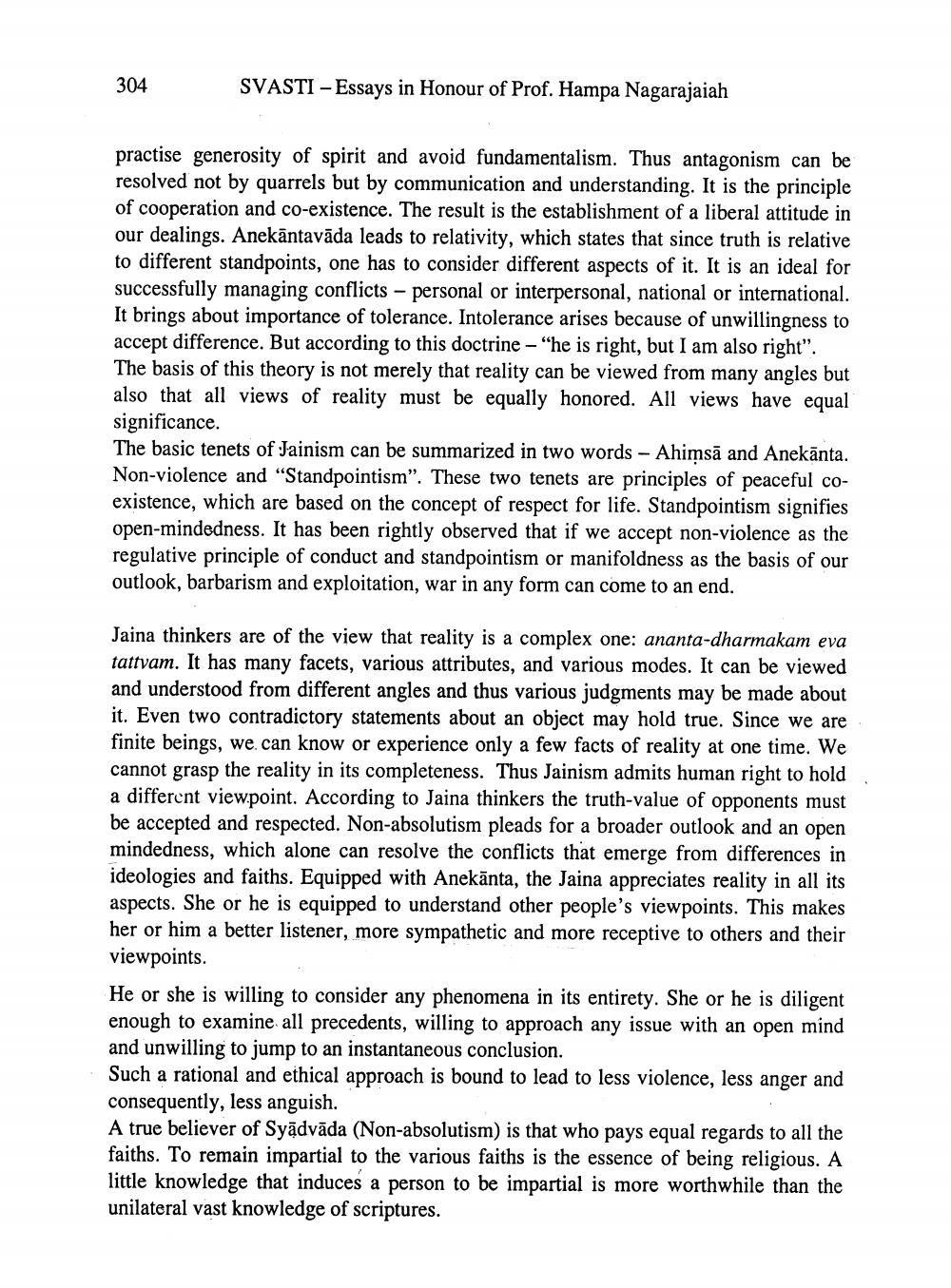________________
304
SVASTI - Essays in Honour of Prof. Hampa Nagarajaiah
practise generosity of spirit and avoid fundamentalism. Thus antagonism can be resolved not by quarrels but by communication and understanding. It is the principle of cooperation and co-existence. The result is the establishment of a liberal attitude in our dealings. Anekāntavāda leads to relativity, which states that since truth is relative to different standpoints, one has to consider different aspects of it. It is an ideal for successfully managing conflicts - personal or interpersonal, national or international. It brings about importance of tolerance. Intolerance arises because of unwillingness to accept difference. But according to this doctrine - "he is right, but I am also right”. The basis of this theory is not merely that reality can be viewed from many angles but also that all views of reality must be equally honored. All views have equal significance. The basic tenets of Jainism can be summarized in two words - Ahimsā and Anekānta. Non-violence and "Standpointism”. These two tenets are principles of peaceful coexistence, which are based on the concept of respect for life. Standpointism signifies open-mindedness. It has been rightly observed that if we accept non-violence as the regulative principle of conduct and standpointism or manifoldness as the basis of our outlook, barbarism and exploitation, war in any form can come to an end.
Jaina thinkers are of the view that reality is a complex one: ananta-dharmakam eva tattvam. It has many facets, various attributes, and various modes. It can be viewed and understood from different angles and thus various judgments may be made about it. Even two contradictory statements about an object may hold true. Since we are finite beings, we can know or experience only a few facts of reality at one time. We cannot grasp the reality in its completeness. Thus Jainism admits human right to hold a different view.point. According to Jaina thinkers the truth-value of opponents must be accepted and respected. Non-absolutism pleads for a broader outlook and an open mindedness, which alone can resolve the conflicts that emerge from differences in ideologies and faiths. Equipped with Anekānta, the Jaina appreciates reality in all its aspects. She or he is equipped to understand other people's viewpoints. This makes her or him a better listener, more sympathetic and more receptive to others and their viewpoints. He or she is willing to consider any phenomena in its entirety. She or he is diligent enough to examine all precedents, willing to approach any issue with an open mind and unwilling to jump to an instantaneous conclusion. Such a rational and ethical approach is bound to lead to less violence, less anger and consequently, less anguish. A true believer of Syādvāda (Non-absolutism) is that who pays equal regards to all the faiths. To remain impartial to the various faiths is the essence of being religious. A little knowledge that induces a person to be impartial is more worthwhile than the unilateral vast knowledge of scriptures.




